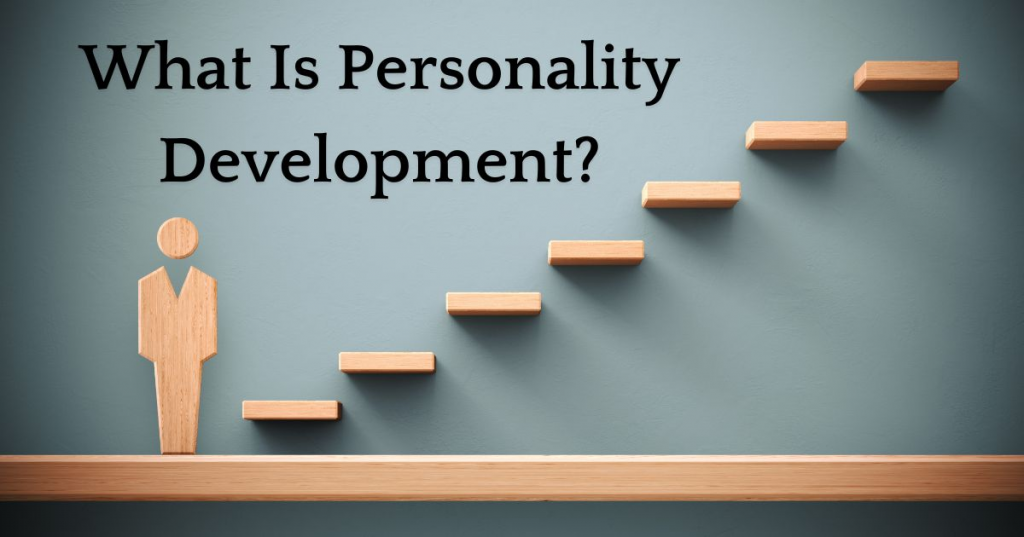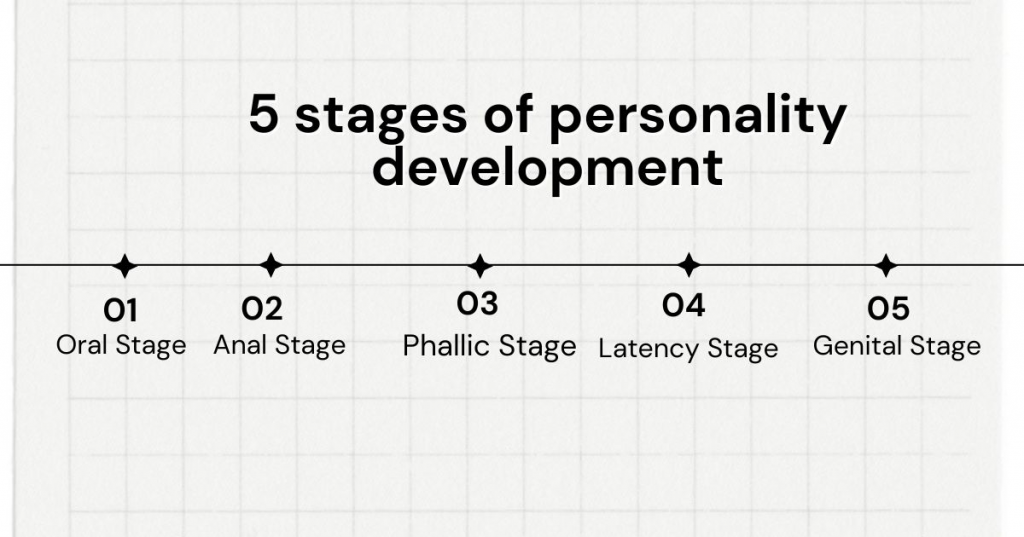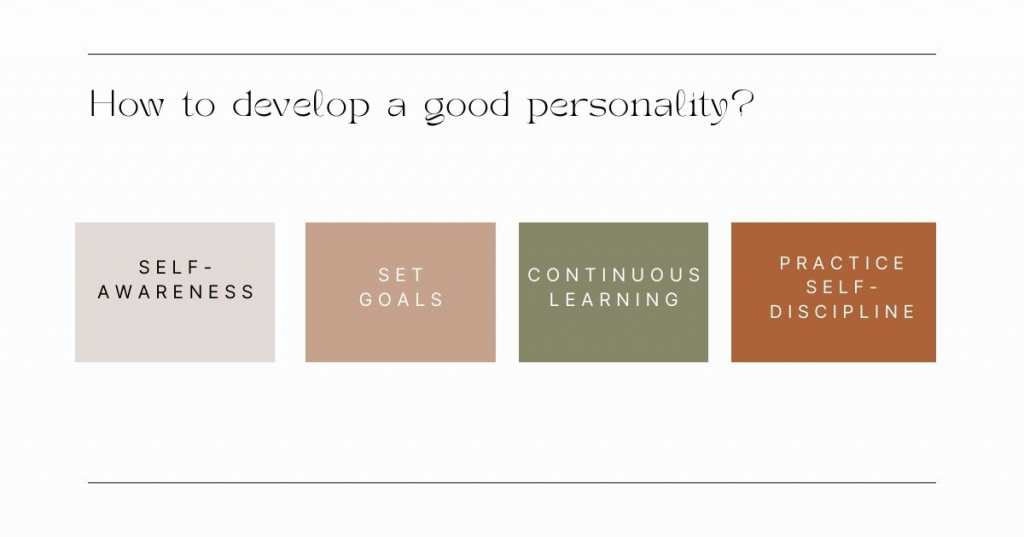Personality Development: Stages and Tips
Personality development is an essential aspect of human growth and evolution, encompassing the gradual and continuous refinement of one's character, behavior, and mindset over time. It involves a series of stages and experiences that shape individuals into who they are and how they interact with the world around them.
Understanding the stages of personality development and implementing effective strategies for personal growth can lead to greater self-awareness, confidence, and fulfillment in life.
In this article, SkillTrans will explore the various stages of personality development, from infancy to adulthood, and provide practical tips and techniques for fostering personal growth and development at each stage.
What Is Personality Development?

Personality development is the process of growing and refining the way you think, feel, and behave. It's a lifelong journey where you can gain a better understanding of yourself and strive to become the best version of yourself.
This multifaceted process involves self-discovery, self-reflection, and intentional efforts to enhance one's strengths, overcome limitations, and cultivate a more authentic and fulfilling sense of self.
It encompasses the complex interplay between genetic predispositions, environmental influences, social experiences, and personal choices.
Life throws curveballs, your needs change, and so does your personality. Development is ongoing and influenced by internal and external factors. Through experiences, interactions, and conscious effort, you can develop your traits, skills, and overall character.
At its core, personality development involves the acquisition of self-awareness, self-regulation, interpersonal skills, and a sense of identity and purpose. It encompasses the formation of beliefs, values, and attitudes, as well as the development of coping mechanisms, resilience, and adaptability in response to life's challenges.
Personality development enables individuals to adapt to changing circumstances, build meaningful relationships, pursue personal and professional goals, and contribute positively to society.
What are the 5 stages of personality development?

Sigmund Freud was an Austrian neurologist and the father of Psychoanalysis. Although some of Freud's theories were controversial and opposed, he is still considered one of the greatest psychologists in history, and his work remains an important part of modern civilization.
As proposed by psychologist Sigmund Freud, there are five stages of personality development, known as "Freud's stages of development". These stages include:
Oral Stage
This stage occurs from birth to about 1 year old. During this stage, infants explore the world through oral activities such as sucking, chewing, and biting.
This stage is crucial for developing a sense of trust and security based on how their needs are met during feeding. Furthermore, experiences during this period can influence how children think and interact socially later on.
Anal Stage
This stage occurs from about 1 year old to 3 years of age. It centers around the development of control and mastery over bodily functions, particularly bowel and bladder movements. The main target during this stage is toilet training, which can impact a child's sense of autonomy.
Controlling the body's functions is an important lesson during this stage. Children could learn about control and develop a sense of independence or orderliness based on how toilet training is handled. Lessons learned at this stage can lead to personality traits such as being overly tidy or messy in adulthood.
Phallic Stage
This stage occurs from about 3 to 6 years of age. Children begin to develop an awareness of the differences between men and women and observe their gender characteristics. During this period, Freud suggested that children develop a series of emotions and conflicts
During the Oedipus Complex stage, boys often develop a special interest in their mothers and there is often a conflict between loving their mothers and competing with their fathers. Meanwhile, the girls experience Complex Electra, in which they have similar feelings towards their father.
Latency Stage
This stage occurs from about 6 years to puberty. It is a period of relative calm and stability, during which sexual impulses are repressed, and children focus on developing social and cognitive skills through interactions with peers and adults.
Children focus on friendships, hobbies, and learning societal norms. This stage is crucial for developing a sense of competence and self-esteem.
Genital Stage
The individual becomes interested in finding a partner, developing romantic relationships, and learning how to express love maturely.
The genital stage plays an important role in perfecting human personality. This is the stage where individuals learn to express love, build lasting relationships, and achieve satisfaction in their sex lives. Healthily going through this stage helps create the foundation for a happy and fulfilling life.
How to develop a good personality?

Developing a good personality involves a combination of self-awareness, self-improvement, and upgrading skills. Here are some tips to help you enhance your personality:
Self-awareness
Take time to understand yourself, your strengths, weaknesses, values, and beliefs. Reflect on your thoughts, feelings, and behaviors to better understand who you are and what drives you forward.
You might consider keeping a journal to record your reflections and insights on a problem. Over time, your perspectives may change positively or negatively. Until you look back, you don't even know that you had such thoughts in the past.
If you have difficulty evaluating yourself, you can seek feedback from a trusted friend, family member, mentor, or colleague. Others can offer valuable perspectives and insights that you may not have considered, and open up diverse new perspectives. Accept constructive criticism, then use it as an opportunity to improve yourself.
Reflect on activities or situations in which you excelled or in which you had difficulty. Recognizing your strengths can boost your confidence while admitting your weaknesses opens up growth opportunities.
These are the principles and ideals that guide your decisions and actions. This self-awareness lays the foundation for personal growth, development, and fulfillment.
Set goals
You need to identify areas for personal development and set specific, achievable goals to work towards. Whether it's improving your communication skills, becoming more confident, or expanding your positive mindset, having clear goals can help you stay focused and motivated.
Reflect on areas of your life where you feel you can improve. That may include professional skills, interpersonal relationships, emotional intelligence, physical health, or personal habits.
One of the common practices you should apply is to set SMART goals - Specific, Measurable, Achievable, Relevant, and Time-bound. Additionally, you should break your goals into smaller, actionable steps to make progress more manageable and trackable.
In the process of achieving your goals, you will inevitably encounter difficult challenges. So don't hesitate to seek support from others, such as a mentor, coach, or support group, it will help you stay motivated to move forward. Surround yourself with people who encourage and inspire your growth journey.
Life is changing day by day, so we always need a flexible and adaptable spirit. You should consider goals not as a fixed factor. Therefore, to respond to any change, you need to be ready to adjust your goals and strategies based on changing circumstances or new insights. Flexibility allows you to effectively overcome obstacles and setbacks while remaining focused on your long-term goals.
Continuous learning
Knowledge is endless, so learning is a process that takes place throughout each person's life. You can read books, take courses, participate in drafts, or learn from social networks to expand your knowledge and skills.
One of the common ways to maintain a passion for learning is to approach life with a sense of wonder and curiosity. Be open to exploring new ideas, perspectives, and experiences. You can ask yourself questions and seek answers to gain a deeper understanding of the world around you.
If you want to broaden your horizons, you should proactively explore a variety of topics beyond your area of expertise. Dive into topics that intrigue you or research fascinating issues. Engaging with diverse perspectives can broaden your understanding and promote personal growth.
Practice self-discipline
Self-discipline is a key factor in achieving goals and succeeding in life. Self-discipline is not simply about following rules and schedules but is also an approach to organizing and shaping one's daily life consciously and purposefully.
Health is the most valuable asset of each of us. If we do not attempt to maintain our health, acute consequences will occur when we grow old. So make self-care a priority by adopting healthy habits that nourish your body, mind, and soul. You should regularly exercise, eat nutritious foods, get enough sleep, and practice stress reduction techniques like meditation or yoga. Remember that change takes time and effort, and every small step you take to build positive habits will bring you closer to your goals.
Manage your time by creating a schedule of tasks for each day, month, and year. You should arrange time concrete for work, study, relaxation, and entertainment activities.
You need to be disciplined but not rigid. Always be flexible and adaptable when faced with challenges or unexpected changes in your plans. Accept that setbacks and setbacks are a natural part of life and be willing to adjust your goals or strategies as necessary to overcome them.
Conclusion
In conclusion, personality development is a multifaceted journey that involves self-awareness, and continuous learning. By understanding the stages of personality development and implementing practical tips for growth, you can enhance your overall well-being and success in various aspects of life.
It's important to recognize that personality development is a lifelong process, and there is no one-size-fits-all approach. Each person's journey is unique, and progress may vary based on individual circumstances and experiences.
Ultimately, personality development is about becoming the best version of oneself and embracing the journey of self-discovery and self-improvement. With dedication, patience, and perseverance, anyone can embark on this transformative journey and realize their true potential.
Now, SkillTrans has a lot of science on personality development. You can easily register and learn many necessary skills to develop a good personality.

Meet Hoang Duyen, an experienced SEO Specialist with a proven track record in driving organic growth and boosting online visibility. She has honed her skills in keyword research, on-page optimization, and technical SEO. Her expertise lies in crafting data-driven strategies that not only improve search engine rankings but also deliver tangible results for businesses.



